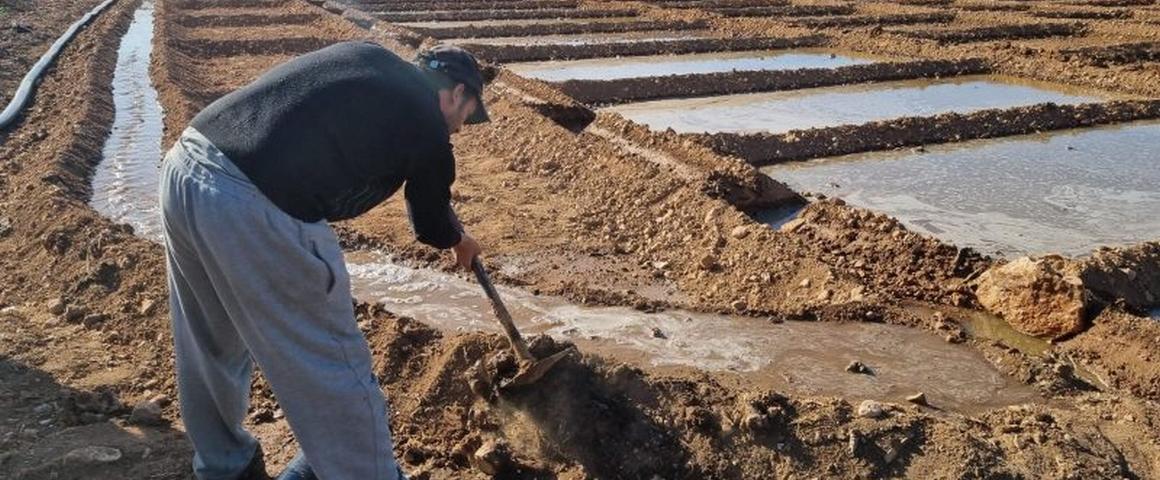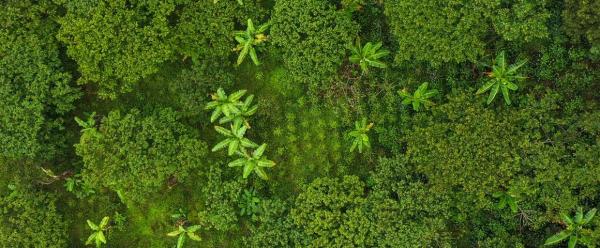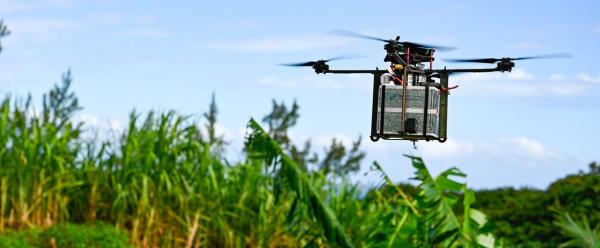Results & impact 10 October 2025
- Home
- Press area
- Press releases
- Water shortages: what becomes of wastewater?
Desalination, wastewater treatment and so on | Putting the future of water resources centre-stage

Farmer recycling wastewater in Tiznit, Morocco © P-L. Mayaux, CIRAD
Seeding clouds to trigger artificial rain, towing icebergs from the Antarctic to supply cities and watering coastal crops with desalinated water are among the many hitherto unimaginable solutions to water stress, and are now shaping how we perceive and manage water resources. These so-called "unconventional" types of water - obtained by desalination and wastewater treatment - are progressing rapidly and snatching all the available investment, to such an extent that although they were initially limited to the Gulf States and the western US, over the past 20 years, they have spread to many arid and coastal regions: North Africa, Spain, the Pacific coast of the US, Southeast Asia, various islands, etc.
A techno-triumphalist narrative
"Despite the major issues crystallized by these new water resources, there is very little scientific knowledge of their social impacts", Pierre-Louis Mayaux, a political science researcher with the G-EAU joint research unit, regrets. "The techno-triumphalist narratives of those who produce and manage unconventional types of water still dominate." A small number of scientists are attempting to counterbalance this situation, for instance the authors of the recent special issue of Water Alternatives. In Arizona, California, Lebanon, Tanzania, Colombia and elsewhere, ten case studies have documented the complex social and political implications of solutions chosen in technocratic arenas to which access is highly restricted, but which apply to all. For the study's authors, it is urgent that we "politicize these types of water", in other words put them at the centre of democratic debate on the future of this vital resource.
"Consultation and decision-making processes must be as timely, transparent and inclusive as possible", says Pierre-Louis Mayaux, who co-coordinated the publication. "And we should also allow ourselves to take a fresh look at how we use water, rather than continuing to produce ever more water, whatever the cost, to sustain damaging models."
Bespoke solutions to mitigate the risk of inappropriate ones
The researcher quotes the example of the adverse social effects of recycled water reallocation practices. In Dar Es Salaam, for instance, periurban smallholders who need water for irrigation could be deprived of the resource as a result of the building of a treatment unit and official irrigation schemes. The Colombian island of San-Andrés, for its part, abandoned a promising rainwater collection project in favour of a desalination plant primarily built to supply tourist facilities.
The promises of abundance made by such projects in fact often turn into the perpetuation, if not exacerbation, of existing inequalities. Far from solving the socioeconomic and environmental crises they set out to tackle, unconventional water resources, which are costly to produce, sometimes fuel them. "This is symptomatic of inappropriate solutions: we are wasting time that could be spent attacking the roots of the problem", the scientist adds. He concludes by saying "These solutions can be useful in some cases. We are not against them in principle. However, rather than seeing them as the obvious choice, we should be discussing them first".
Référence
Williams Joe, Beveridge Christine, Mayaux Pierre-Louis. 2023. Unconventional waters: A critical understanding of desalination and wastewater reuse. Water Alternatives, 16 (2), n.spéc. Unconventional waters: A critical understanding of desalination and wastewater reuse : 429-443.



























